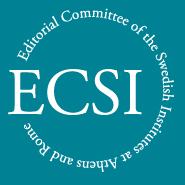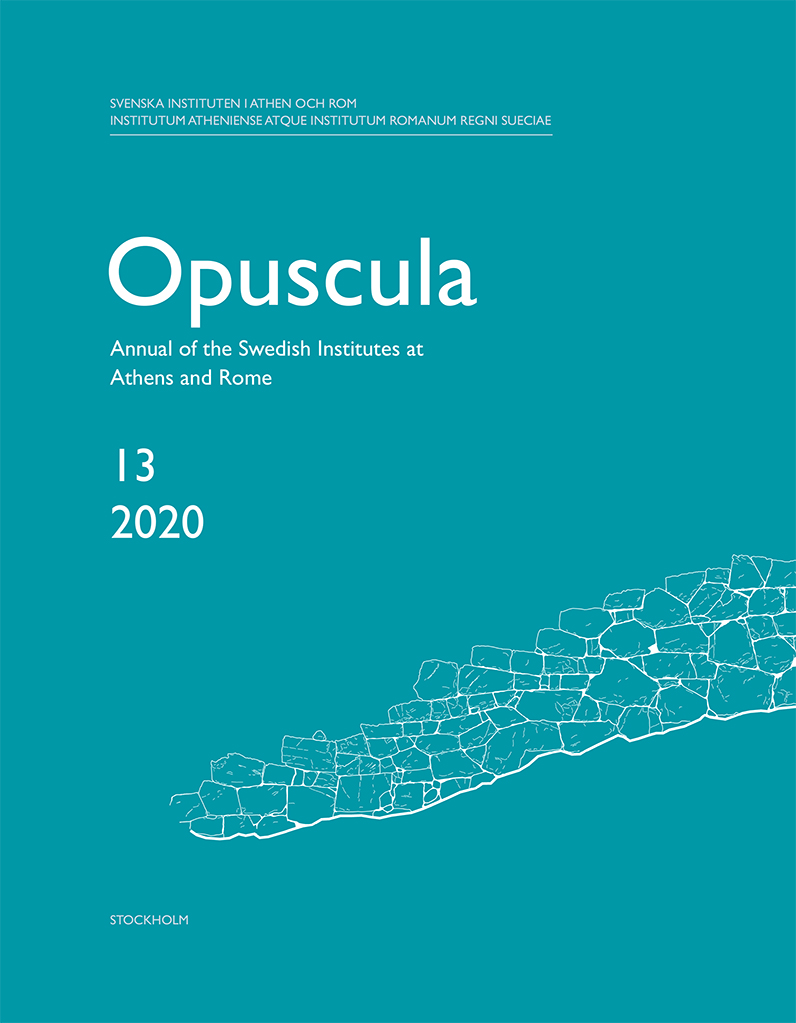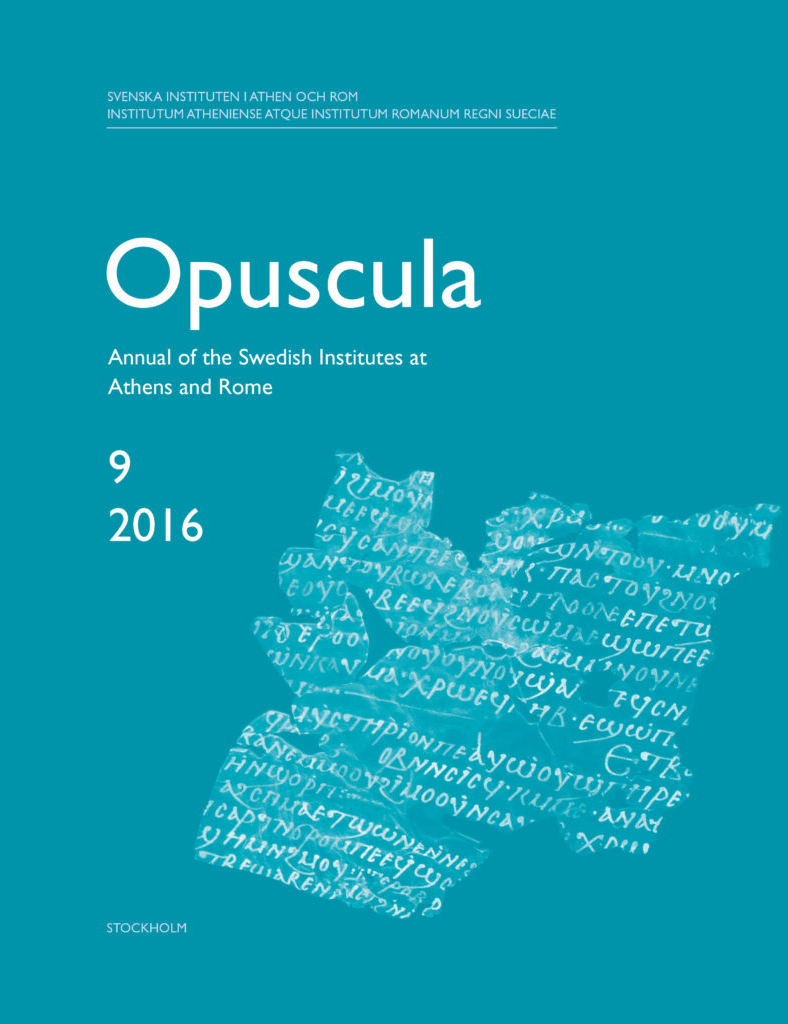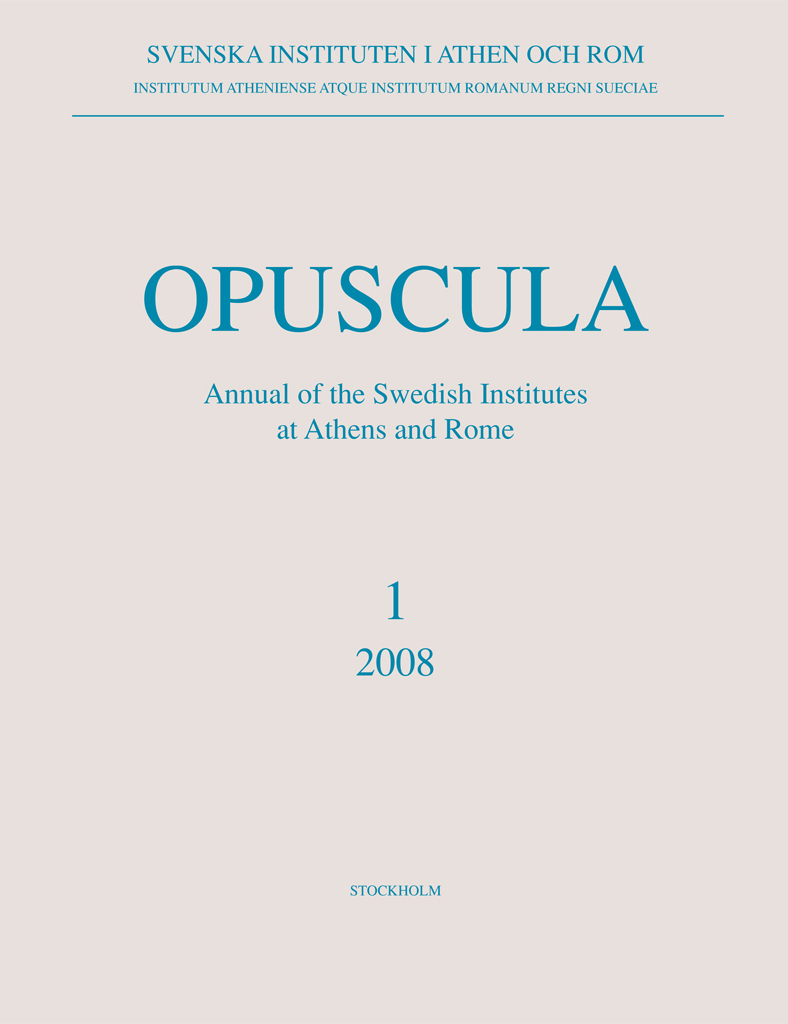All content of Opuscula 13 is available with open access. Printed edition distributed by Eddy.se AB. Also available at Amazon.com, Adlibris, and Bokus. View volume at ERIH PLUS. Religion and family politics in Hellenistic Kalaureia. Three new inscriptions from the sanctuary of Poseidon By Nikolaos Papazarkadas (University of California, Berkeley, USA) & Jenny Wallensten (Swedish Institute at Athens, Greece) Abstract This article presents three unpublished Hellenistic inscriptions from the sanctuary of Poseidon in Kalaureia (modern Poros): two found during archaeological excavations on the site and one recorded in a letter that was once part of Ioannis Kapodistrias’ official correspondence. All three inscriptions were dedicatory and carved on bases supporting portrait statues. Interestingly, they were offered to Poseidon by members of a single family already known from other documents in the Kalaureian epigraphic corpus. Remarkably, eight out of the 18 inscriptions discovered in Kalaureia make repeated references to men and women of this very family, which appears to have materially dominated Poseidon’s temenos and its environs during the 3rd and 2nd centuries BC through the careful placement of portraits of its members. Most of these statues were conspicuously placed by the entrance to the sanctuary, though at least one of them…
Opuscula 9 (2016) is now available for purchase and free download at bokorder.se. Also available at Amazon.com, Amazon.de, Bokus.com and Adlibris.com. Divine commands, authority, and cult: Imperative dedications to the Egyptian gods By Eleni Fassa Abstract This article presents the dedications made to the Egyptian deities “in accordance with divine command” in the eastern Mediterranean during the Hellenistic and Roman periods. The gods of Egypt exhorted and, if disobeyed, demanded from their adherents the performance of specific actions. As it is demonstrated by “imperative dedications” this communication between gods and worshippers was disclosed in public. First, the article examines the imperative expressions in use, the syntax and style of dedicatory language, and proposes a typology of “imperative dedications” in the framework of Isiac cults. Moreover, it is argued that imperatives constituted a means for the promotion of Isiac cults; most often, the Egyptian gods requested the execution of ritual acts, which either improved and embellished already-founded Isiac cults, or advanced the introduction of Isiac divinities in the cities of the Graeco-Roman world. Finally, it is asserted that “imperative dedications” constitute an important testimony for Graeco-Roman attitudes regarding the Egyptian gods. They are indicative of a complex relationship between these gods…
Opuscula 1 (2008) is out of print. Available for free download at Bokorder.se. Used copies might be available at Amazon.com and Amazon.de. Visualized rituals and dedicatory inscriptions on votive offerings to the nymphs By Milette Gaifman Abstract This article explores the religious meaning of Archaic and Classical dedications with images of rituals (e.g. sacrificial procession, libation) and dedicatory inscriptions. I argue that these objects ought to be treated as meaningful expressions of individuals’ piety rather than as reflections of actual cult practices. I adopt a holistic approach that considers the two components of dedications—images and texts—as inextricably intertwined in the creation of meaning. The argument is exemplified through the examination of dedications to the Nymphs: the so-called Pitsá tablet, Archandros’ relief from the Athenian Asklepieion, and two reliefs from a cave at Penteli. The detailed analysis of images, inscriptions, and their juxtaposition reveals how these dedications made the devotion of named individuals perpetual at a specific site, and shaped the manner in which the sacred was to be envisioned. Art and text together marked the site of deposition as a place of worship of the Nymphs, articulated specific ideas regarding rituals, the nature of the goddesses and their companions Pan…



